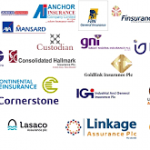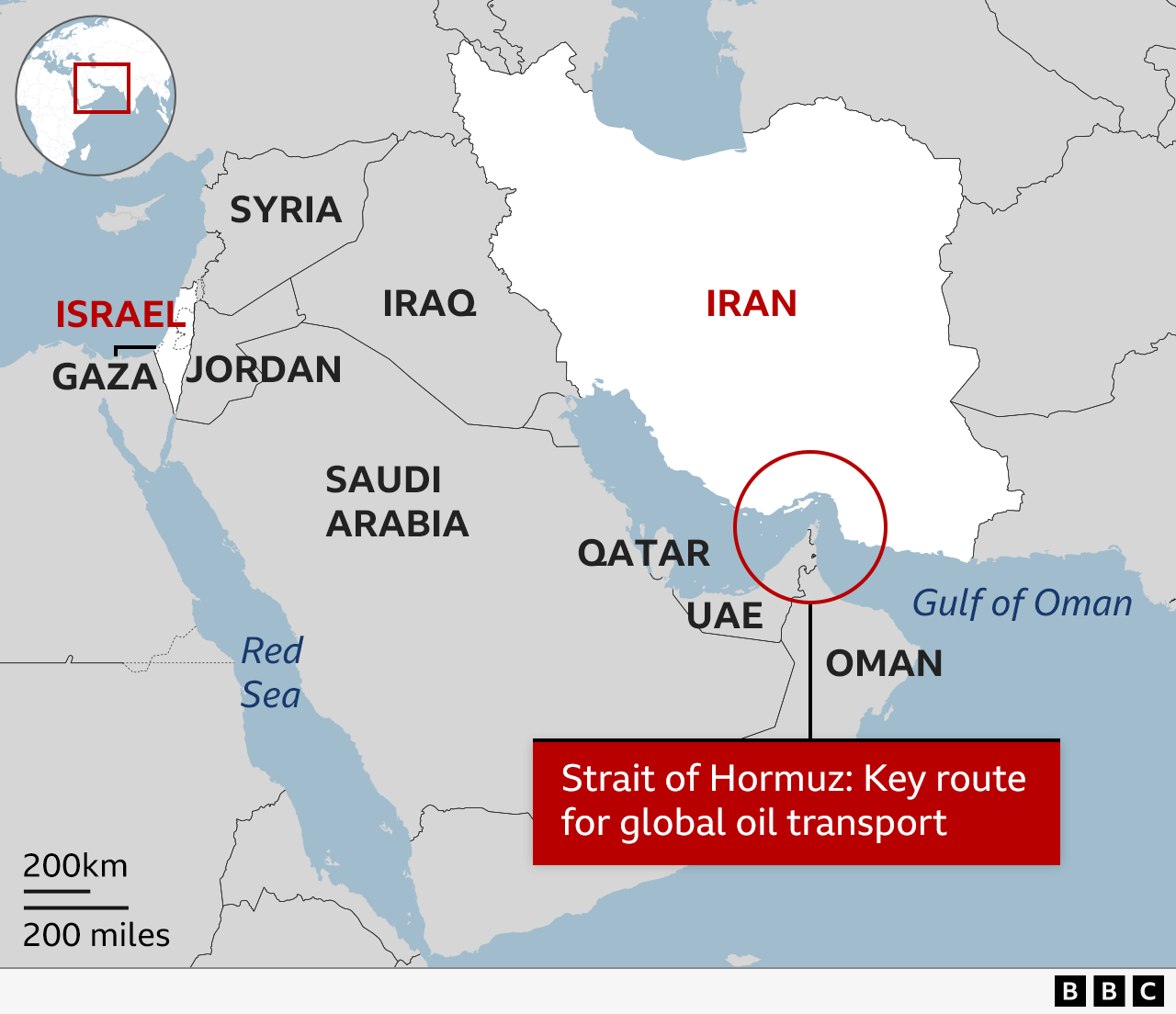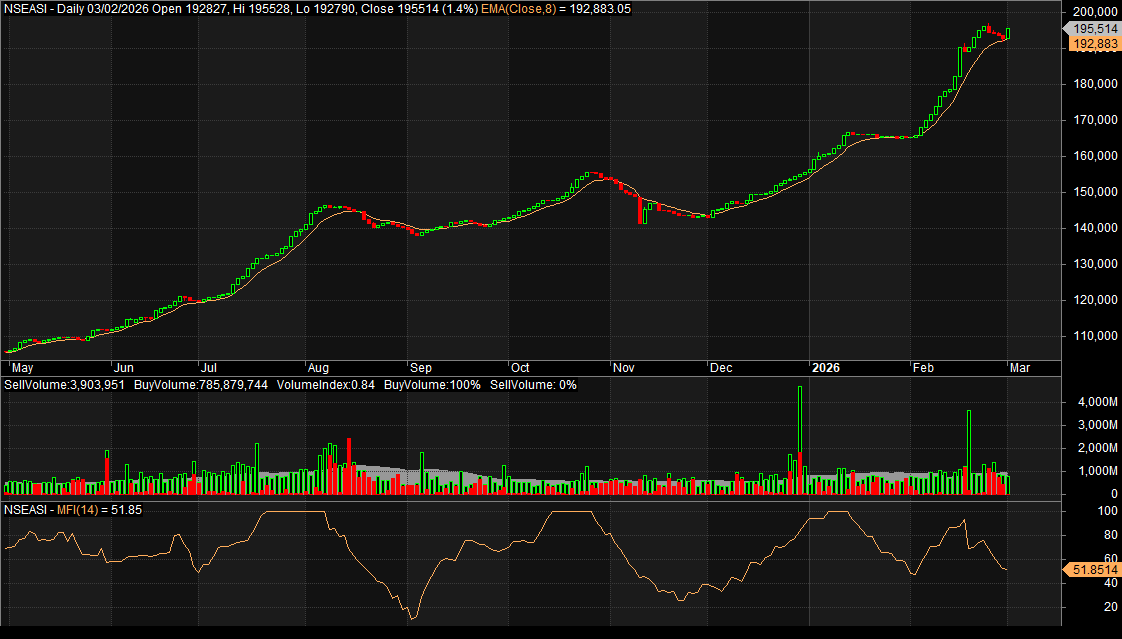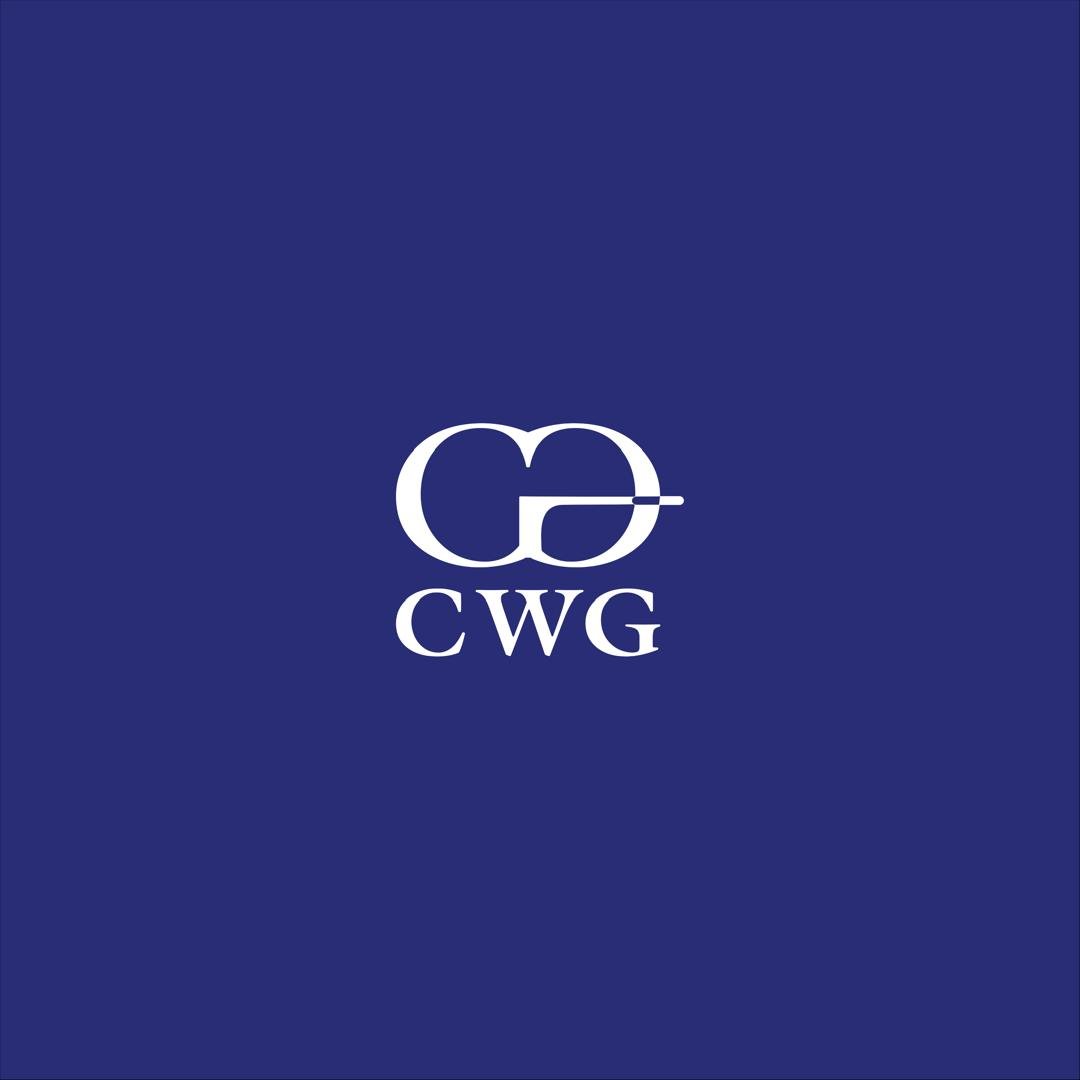
Quarter Under Preview: Full Year
Current Share Price: N38.15
Latest Dividend-(2022): N1.10
Estimated Beta Value: 0.75x
Estimated Intrinsic Value: N14.61
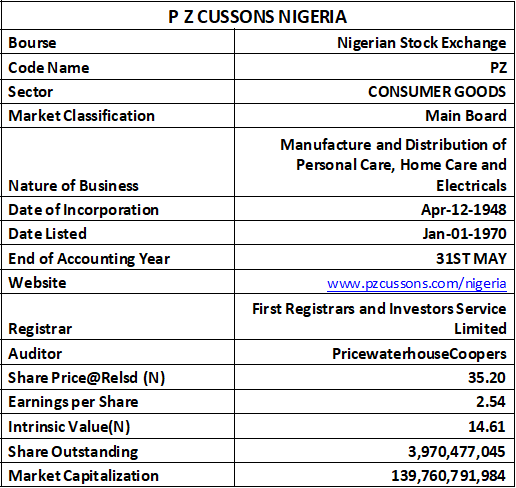
PZ Cussons Nigeria Plc is the Nigerian subsidiary of the UK-based consumer goods conglomerate- PZ Cussons. According to reports, the company has been significantly impacted by the local economic and foreign exchange crises, following the devaluation of the Naira, which has severely impacted PZ Cussons’ sales and operations. The company, indeed, flagged this challenge as a major factor in its performance, resulting in its decision to review its African operations, including the likelihood of exiting the continent due to harsh operating environment, as reported in the Vanguard newspaper of April 25, 2024. Nevertheless, the company has continued to release its operational indexes to the investing public till date.
Financial Numbers
Comparing the financials released by the company’s management for the year ended 31st May, 2025 with that of 2024, we observed a 39.66% growth in turnover figure from N152.249 billion to N212.63 billion. Direct Cost of Sales was estimated at NN154.926 billion, same as 57.89% above the N98.120 billion reported in the corresponding period. Operating Profit for the period stood at N18.922 billion compared with an Operating Loss of N127.430 billion in the corresponding period of last year. Operating Cost grew to N32.597 billion, as against N23.905 billion in the comparable year. Profit before Tax is valued at N16.660 billion, while the Total Profit for the year is N10.066 billion, this is a major recovery from the Loss Position of posted last year. See the below table for details:
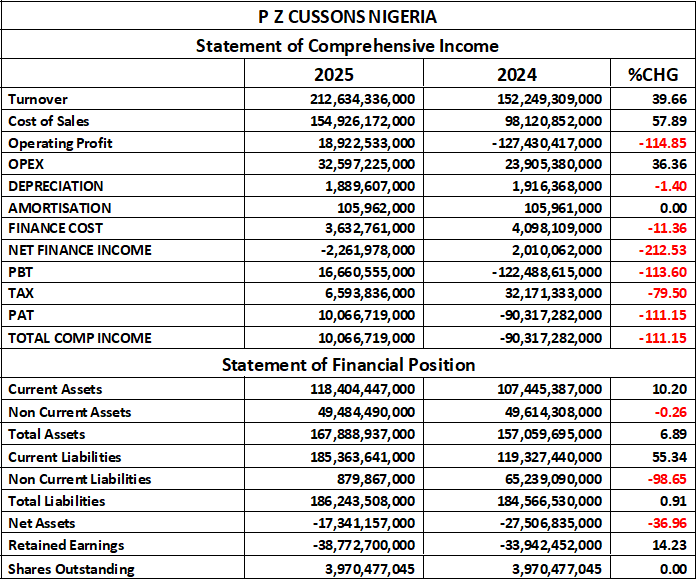
Current Assets reported at the end of the financial year is valued at N118.404 billion, same as 10.20% growth over the N107.445 billion at the end of December 2024 financial year. Non-Current Assets on the other hand dipped by marginal 0.26% to stand at N49.484 billion. Thus, Total Assets stood at N167.888 billion from N157.059 billion. Total Liability is currently valued at N186.243 billion almost same as N184.566 billion in the corresponding year. Nets Assets and Retained Earnings remained negative as shown in the table above.
Financial Strength

The Company’s financial position remains fragile, reflecting its persistent over-leverage and negative shareholders’ equity. Although the Debt Ratio improved marginally from 117.51% to 110.93%, it still shows that Total Liabilities exceed Total Assets, underscoring the high reliance on debt financing.
Similarly, the Total Debt to Equity Ratio deteriorated further from -670.98% to -1,074%, driven by negative equity, a sign that the firm remains technically insolvent.
Equity Ratio improved slightly from -17.51% to -10.33%, suggesting a modest progress towards capital restoration, possibly due to reduced losses or partial asset recovery.
However, the overall capital structure is still critically weak. The company’s solvency risk remains elevated, and its financial flexibility is limited.
In conclusion, while slight improvements are evident in the period under review, the firm’s financial strength is still poor, and sustained profitability alongside active debt restructuring will be essential to rebuild equity and restore long-term financial stability.
Profitability Ratio

The company’s profitability shows a significant improvement, though recovery remains incomplete. EBITDA margin rose sharply to 8.90% from a loss of -83.70%, indicating a strong turnaround in core operations and better cost control. However, Cost of Sales to turnover increased to 72.86% from 64.45%, suggesting that production or impute costs are still pressuring gross margins.
Despite the operating recovery, bottom line performance remains weak, with a Return on Equity of -58.05%, reflecting negative shareholders’ funds and continued capital erosion. Conversely, Return on Assets improved to 6% showing that Assets are now generating modest positive returns, signaling the early stages of operational stabilization.
Overall, the company is moving from loss to gradual recovery, with improving efficiency and assets returns, but still faces capital structure challenges and must sustain profitability to rebuild shareholders’ value.
Efficiency Ratios

Operating Expenses remained well-controlled, with Operating Expenses to Turnover Ratio slightly improving to 15.33% from 15.70%, indicating better cost discipline and improved expense management relative to revenue. In addition, Turnover to Total Assets increased markedly from 96.94% to 126.65%, showing enhanced assets utilization and stronger revenue generation from existing resources.
In summary, these indicators reflect improving operational efficiency, as the company is generating more sales from its asset base while keeping operating cost stable. This is a positive sign of management’s growing effectiveness and operational resilience.
Investment Ratios

The company recorded a strong earnings recovery, with Earnings per Share rising to N2.54 from a loss of N22.75 each, reflecting a significant turnaround from deep losses to profitability. The Price to Earnings ratio improved to 13.88x from -0.92x, suggesting that the market is beginning to reprice the stock in line with renewed earnings strength.
Similarly, Earnings Yield rebounded to 7.2% from a negative 108.32%, indicating that investors are now receiving positive returns on earnings relative to price. However, the Book Value per share improved from negative N6.93 to a negative N4.37, suggesting a gradual recovery in shareholders; funds and a slow but steady rebuilding of equity value.
Overall, these results point to a solid operational recovery and an encouraging improvement in market valuation metrics. However, management must sustain profitability and continue strengthening the balance sheet to fully restore investor confidence and achieve long term financial resilience.
Outlook & Recommendations
The company’s profit rebound marks a positive turning point after prior losses, operational efficiency and revenue generation have improved significantly, signaling better management execution. However, the balance sheet remains weak, with negative equity and high debt burden posing medium-term risks to financial stability.
On the strength of the above, we recommend that at the current valuation of N14.61 per share, the stock reflects improving fundamentals but remains high-risk due to the fragile equity base. If priced within this value, it is suited for medium-to-long-term investors with higher risk tolerance, awaiting full financial recovery. Putting this price side by side the current market price, we are of the opinion that the stock is currently highly priced by investors, thus, positions should be done cautiously for medium and long term.


